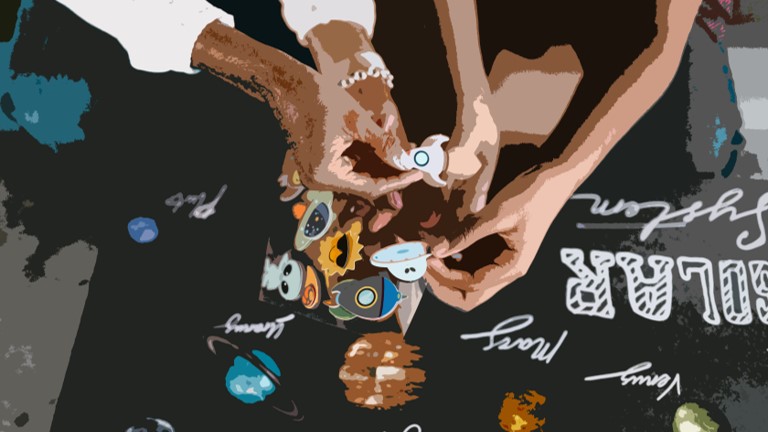A Parent’s Guide to Celebrating Black History Month
In February, we celebrate Black History Month to acknowledge the remarkable achievements and struggles of the African American community. As parents, it’s important we pass on this knowledge to the next generation to foster an understanding and appreciation for our diverse American history.

As we dive into the month of February, it’s more than the conventional symbols of love like roses and chocolates. This month, we celebrate Black History month, a time dedicated to acknowledging the remarkable achievements, the struggles, and rich heritage of the African American community. As parents, it’s crucial we pass on this knowledge to our little ones, instilling in them a profound understanding, empathy, and appreciation for the rich and diverse history we share as Americans. Here, I will explore the importance of Black History Month and shared some engaging ways to educate our children about the incredible individuals and events that have shaped our world.
THE SIGNIFICANCE OF BLACK HISTORY MONTH
Black History Month is not just time to look to the past; it’s a dedicated period to recognize, celebrate, and honor the achievements, contributions, struggles, and rich cultural heritage of African Americans throughout history. This dedicated period emerged as a response to the historical neglect and underrepresentation of Black individuals and their accomplishments in mainstream education and cultural narratives.
As parents, it’s our responsibility to instill in our children an awareness of the struggles and triumphs of African Americans throughout history. By doing so, we contribute to raising socially conscious and empathetic individuals who appreciate the value of diversity. Here is a list of engaging ways to educate and bring awareness to our children about the incredible individuals and events that have shaped our world.
ENGAGING RESOURCES FOR YOUNG MINDS BOOKS
One of the most effective ways to introduce children to Black history is through literature. There are numerous children’s books that beautifully narrate the stories of prominent Black figures, making history come alive for young minds. Some must-reads include:
- “Little Leaders: Bold Women in Black History” by Vashti Harrison
- “The Undefeated” by Kwame Alexander
- “Hidden Figures” by Margot Lee Shetterly (adapted for young readers)
These books not only capture the essence of historical narratives but also engage and captivate young readers, fostering a deeper understanding of the diverse and influential contributions made by Black individuals throughout history.
MOVIES
In addition to literature, you can turn family movie nights into educational experiences by exploring movies and documentaries that shed light on Black history. Some classics that come to mind include:
- “Selma,”
- “Remember the Titans,”
- “Hidden Figures”
These films are not only entertaining but also provide valuable insights into the struggles and triumphs of the African American community. By incorporating these cinematic narratives into your family time, you create a dynamic and engaging way for both children and adults to connect with and appreciate the profound impact of Black history.
MUSEUMS AND EXHIBITS
Consider taking your family to local museums or exhibits that specifically focus on Black history. Numerous institutions curate special displays, especially during Black History Month, offering an immersive experience that has the potential to leave a lasting impact on your child’s understanding of this significant subject. Exploring these exhibits provides a tangible and enriching opportunity for your family to connect with the historical narratives, artifacts, and achievements that have shaped the African American experience.
SHARE STORIES AND ENGAGE IN CONVERSATIONS
In addition to exploring educational resources, consider incorporating personal stories into your discussions about Black history. Share stories within your family or community that highlight resilience, achievement, and even challenges faced. By connecting the past to your child’s own heritage, you make history more relatable and meaningful.
Also, open, honest, and age-appropriate conversations are key to fostering a deeper understanding of Black history. Create a safe space for your children to ask questions, express their thoughts, and share their own perspectives. By encouraging dialogue, you not only impart knowledge but also promote critical thinking and empathy.
IN CONCLUSION
As parents, we play a crucial role in shaping the perspectives of the next generation. By actively participating in the celebration of Black History Month, we contribute to the creation of a more inclusive and compassionate society. Let’s make this February a time of learning, reflection, and appreciation for the rich and cultural heritage of African Americans. Together, we can empower our children to embrace diversity, stand against injustice, and build a future where everyone’s story is valued and celebrated.





